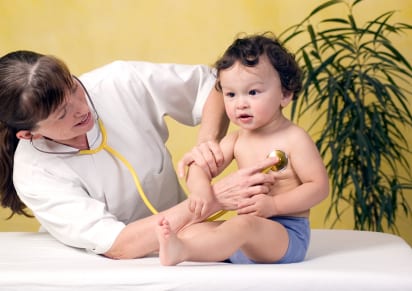 Preventative medicine is the backbone of pediatrics. For starters, we vaccinate children to prevent serious illnesses. Pediatricians are constantly counseling patients and their families on the health benefits of exercise and good nutrition and how these habits will lead to a healthier life. And, sometimes medications to prevent recurrent illness are necessary.
Preventative medicine is the backbone of pediatrics. For starters, we vaccinate children to prevent serious illnesses. Pediatricians are constantly counseling patients and their families on the health benefits of exercise and good nutrition and how these habits will lead to a healthier life. And, sometimes medications to prevent recurrent illness are necessary.
First, I want to discuss the difference between “rescue” and “control” medications and their use in recurrent health problems. For any recurrent health issue- acid reflux, diabetes, asthma, etc- there are medicines to treat the problem when it flares-up. These are called rescue medicines. And, there are medicines to prevent a flare-up from occurring. These are called control medicines. It is very easy to get patients to take rescue medicines: they offer immediate relief. Convincing patients to take control meds is a completely different story, as people are reluctant to take medicine when they feel fine. This problem is amplified in children. As a parent, it is sometimes hard to admit that your child is not perfect and requires chronic care. Also, a small child or baby cannot communicate to his parents that the chronic condition is affecting him when it may look like he is feeling well.
Obviously, adults have many more recurrent conditions than children. As a population, adults are used to taking a variety of control medicines to keep those conditions flare-up free. I want to discuss two recurrent health issues in children that are more commonly seen during the winter months to help illustrate rescue versus control medications.
Eczema
Winter skin is dry skin. The combination of dry, cold air outside and heated air inside the house dries out skin. Some of the chemicals used in bathing products have a tendency to dry the skin out as well. So, if your child suffers from dry skin, bathe him when he is dirty, not as part of a routine. Dry skin is itchy skin. Some people refer to eczema as a rash that itches, I call it an itch that rashes. The more the skin is scratched, the more irritated and inflamed the skin becomes. The mainstay control therapy of this condition is aggressive lubrication w/ a thick moisturizer. Lubrication multiple times a day is sometimes needed to keep the eczema from flaring. Once the skin gets inflamed, it sometimes will require a topical steroid to calm the flare (rescue medication). Overuse of these rescue medications can sometimes lead to discoloration and thinning of the skin (especially on the face), so the goal is to use the control lubricant and avoid the rescue drug. This control regimen is an easy sell to parents as most parents do not have fears about using lubricants daily.
Asthma
Asthma accounts for a large percentage of the ill visits I see in my office. In many children, catching a cold will trigger their asthma, and that is why asthma visits increase during the winter. There are a multitude of medications for asthma, both control and rescue. And, like any illness, asthma varies in severity between children. Severe asthmatics have to take control medications daily or they develop breathing problems. On the other end of the spectrum, there is a group of patients who very rarely have a flare-up and thus only take rescue medications during a flare. There are a large number of kids, however, that have more moderate asthma and they are the patient population that should be taking a control medication to avoid flare-ups; unfortunately these are the patients that often avoid starting chronic therapy. Some patients feel too well between flare-ups. Some patients fear medication side effects. It is this population of patients for whom education is crucial. I need to make sure they understand the short and long term complications of not controlling the problem, and I need to dispel their fears about medication.
Obviously, a bad eczema flare is hard to compare to a severe asthmatic attack. One gives you a bad, itchy rash and the other might land a child in the hospital. I wanted to use these examples to illustrate the control versus rescue approach to any recurrent health problem. The goal of pediatricians dealing with recurrent illness is to keep that illness controlled so as not to affect their patients’ quality of life. Whether improved quality of life comes from sleeping better because your skin does not itch, or if it comes from playing soccer without coughing, control medications play a vital role.
Make sure to discuss all options with your doctor in relation to your child’s specific illness.
All information given is not a substitute for the advice of your pediatrician, primary care provider or trained health professional. Always consult with your pediatrician or health care professional





